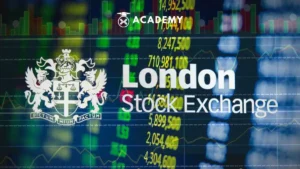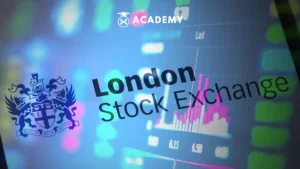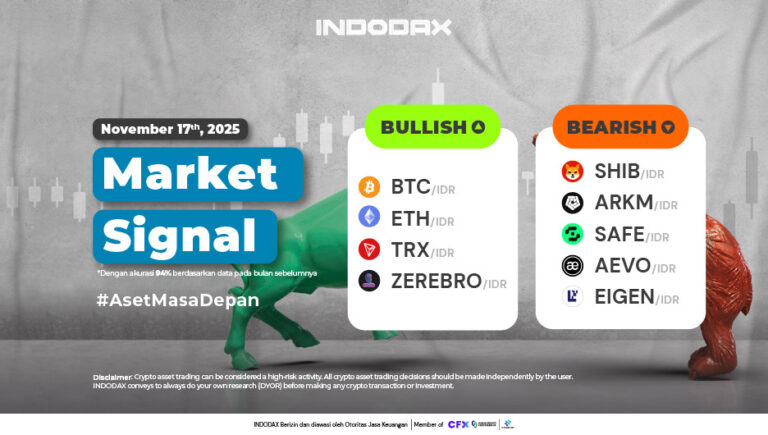The London Stock Exchange (LSE) is one of the oldest and largest stock exchanges in the world, with a significant influence on global markets.
Founded in 1801, the LSE has become an important hub for trading stocks and other financial instruments for both local and international companies.
With its open and transparent market structure, the LSE plays a vital role in attracting global investors, providing companies with access to capital, and facilitating efficient trading.
In addition, the LSE is also renowned for its high standards in terms of regulation and corporate governance, making it a preferred choice for many companies seeking to list their shares publicly.
What is the London Stock Exchange (LSE)?

The London Stock Exchange (LSE) is a stock exchange in London that has been operating for centuries, providing a platform for trading stocks and other financial instruments.
The LSE is a place where companies can raise capital from public investors and where investors can buy and sell shares of companies, both domestically and internationally.
As one of the largest stock exchanges in the world, the LSE is a place for companies from all over the world to list their shares and for investors to transact.
The openness and accessibility of this market allows the LSE to play a vital role in the global economy, attracting both domestic and international investors.
The LSE supports economic growth by providing a platform that allows companies to raise capital from public investors.
Through the process of listing shares on the exchange, companies can obtain the funds needed for expansion and innovation.
This, in turn, helps to increase employment, advance industrial sectors, and strengthen the economy as a whole.
In addition, the LSE provides access to companies to gain global visibility that can enhance their reputation and appeal in the international market.
People Also Read: This is the Most Complete Schedule of American Stock Exchange Hours Indonesian Time
A Brief History of the London Stock Exchange
The London Stock Exchange (LSE) has a long history that dates back to the late 17th century, making it one of the most influential stock exchanges in the world.
Initially, the LSE served as a place for traders to conduct informal transactions in various cafes in London.
Over time, the LSE developed and became a more organized trading center, making a major contribution to the global capital market.
In the late 17th century, traders in London began to gather in cafes to discuss and trade stocks. This activity grew along with the increasing number of traders interested in investing.
These informal meetings became the forerunner to the formation of the LSE as a more structured place for trading stocks and securities.
In 1801, the LSE was officially established and began to function as an organized stock exchange, giving companies access to raise capital from the public.
Since then, the LSE has continued to grow, becoming a global trading center, and playing a vital role in the world economy, for both domestic and international companies.
The LSE has undergone a number of reforms and regulatory changes throughout its history, making it more modern and transparent.
From improving corporate governance standards to implementing the latest technology, the LSE continues to adapt to the needs of the global market, ensuring more efficient and accessible trading for all.
Strict regulation helps create a fair and open market for investors and companies.
Market Structure on the London Stock Exchange
The London Stock Exchange (LSE) has a range of markets designed to meet the needs of companies and investors of all sizes and types.
The market structure on the LSE includes a main market for large companies, as well as alternative markets for smaller and emerging companies. Here is an explanation of the market structure on the LSE.
A. Main Market
The LSE Main Market is for large, established companies that meet stringent listing standards.
Companies listed on the Main Market must meet high financial and transparency requirements to ensure investor confidence.
The market provides access to a broad range of global capital, while also providing high prestige for listed companies, making it a top choice for large companies looking to attract investors from around the world.
B. Alternative Investment Market (AIM)
AIM is specifically designed for smaller and growing companies, allowing them to access capital with more flexible regulation than the main market.
With a looser approach to listing and disclosure requirements, AIM helps startups and small businesses raise the funding they need to grow.
This provides an opportunity for new companies to get listed and gain access to a wider range of investors.
C. Specialized Markets on the LSE
- Professional Securities Market (PSM)
PSM focuses on the issuance of more specialist debt or bond instruments, aimed at professional investors.
This market allows companies to raise capital through the issuance of debt securities that are accepted by investors with more in-depth knowledge of these financial instruments.
2. Specialist Fund Market (SFM)
SFM is a market designed specifically for investment firms and hedge funds. This market is only available to institutional investors or those with advanced knowledge of the capital markets.
As a regulated market by the European Union, SFM offers securities that meet the mandatory requirements for most investor mandates.
People Also Read: These Are 5 American Stocks with the Biggest Dividends, Must Check!
Stock Indices on the London Stock Exchange
The London Stock Exchange (LSE) provides a variety of stock indices that illustrate the performance of the stock market as a whole and specific sectors.
These indices are important for investors in evaluating market trends and making more informed investment decisions. Here are some of the main stock indices on the LSE.
A. Main Indices that are Economic Barometers
FTSE 100: An index that reflects the 100 largest companies on the LSE by market capitalization. This index is often used as a primary measure of the performance of the UK economy.
FTSE 250: An index that includes mid-sized companies below the FTSE 100, providing a broader picture of the domestic economy.
FTSE 350: A combination of the FTSE 100 and FTSE 250, which reflects market movements more comprehensively.
FTSE All-Share: An index that includes all stocks traded on the main LSE market, providing a comprehensive representation of the condition of the UK stock market.
B. Function of Indexes at LSE
Indices at LSE help investors measure market performance by providing data on collective stock price movements.
By analyzing indices, investors can assess investment trends and determine their portfolio strategies.
In addition, indices also have an influence on global market sentiment, where significant changes in major indices can reflect broader economic conditions and influence investment decisions across the world’s financial markets.
People Also Read: Getting to Know NYSE, the Largest Global Stock Exchange, This is Its Role!
Role and Benefits of the London Stock Exchange

The London Stock Exchange (LSE) plays a vital role in the global financial ecosystem by providing an efficient trading platform and supporting economic growth.
Its superiority as one of the largest stock exchanges in the world makes it a top choice for companies and investors. Here are some of its roles and benefits:
High Liquidity: LSE enables stock trading transactions with large trading volumes so that investors can easily buy or sell assets without experiencing significant difficulties.
Price Transparency: Stock price information is provided in real-time, allowing investors to make investment decisions based on accurate and up-to-date data.
Fundraising for Companies: LSE provides access to capital for companies from various sectors, helping businesses to grow and expand their operations through public listing.
Global Economic Barometer: LSE stock indices reflect the health of the economy, both in the UK and globally, thus becoming a reference for investors in analyzing market trends.
Financial Innovation Center: LSE continues to develop with a variety of modern financial instruments, such as derivatives, bonds, and Exchange Traded Funds (ETFs), providing more investment options for institutional and individual investors.
People Also Read: Getting to Know the FTSE 100: The Top Index in the UK Stock Market
The Influence of the London Stock Exchange on the Global Financial Market
As one of the largest and oldest stock exchanges in the world, the London Stock Exchange (LSE) has a major influence on the dynamics of the global financial market.
With its high trading volume and listing of companies from various countries, the LSE is a major hub in the international financial system.
The LSE serves as a leading indicator for global investors in assessing market trends. Indices such as the FTSE 100 are often used as a reference in financial market analysis, as they reflect the health of the economy and investor sentiment in general.
Many companies from outside the UK choose to list their shares on the LSE in order to gain access to global capital.
With a strong ecosystem and clear regulations, the LSE helps companies from various countries raise funds for expansion and innovation.
The movement of shares on the LSE is also starting to show a connection with digital assets and blockchain technology.
More and more technology and crypto-based companies are seeking funding through the capital markets, while investors are also starting to consider the integration of traditional stock markets and digital assets in their investment strategies.
Conclusion
So, that was an interesting discussion about the London Stock Exchange (LSE): What & How Does It Work? which you can read in full at the Crypto Academy at INDODAX Academy. Not only does it increase your insight into investment, here you can also find the latest crypto news about the crypto world.
In addition, find the latest information about the most complete collection of crypto articles from Indodax Academy.
In conclusion, the London Stock Exchange (LSE) remains one of the most influential stock exchanges in the world, maintaining its relevance over time.
As the oldest active stock exchange, the LSE continues to evolve with various innovations and modern financial instruments, making it an important global financial center.
With a variety of markets and indices that reflect global economic conditions, the LSE provides opportunities for companies to raise funds and for investors to optimize their portfolio strategies.
A deep understanding of the LSE’s mechanisms can help traders and investors make more informed decisions and take advantage of the opportunities offered by the global capital market more effectively.
For additional information, INDODAX will soon introduce a new feature that allows users to invest in stocks traded on the United States stock exchange.
With more than 50 stocks from the US market available, users can expand their portfolio beyond crypto assets in one integrated account on the INDODAX platform.
FAQ
1.Is the London Stock Exchange only for companies from the UK?
No. The LSE is home to many companies from various countries who want to gain access to global capital.
2.How do stock indices work on the LSE?
Stock indices such as the FTSE 100 measure stock performance based on market capitalization and provide an overview of economic movements.
3.Can retail investors buy shares on the LSE?
Yes, retail investors can buy shares listed on the LSE through various investment platforms available.
4.Why is the LSE important for the global economy?
The LSE provides access to capital for large and small companies, reflects economic conditions, and is the main reference for the world’s stock market.





 Polkadot 9.04%
Polkadot 9.04%
 BNB 0.45%
BNB 0.45%
 Solana 4.76%
Solana 4.76%
 Ethereum 2.37%
Ethereum 2.37%
 Cardano 1.75%
Cardano 1.75%
 Polygon Ecosystem Token 2.16%
Polygon Ecosystem Token 2.16%
 Tron 2.85%
Tron 2.85%
 Market
Market


